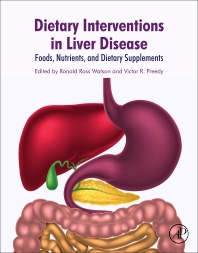Books in Life sciences
Books in Life sciences
Elsevier's Life Sciences collection helps researchers get comprehensive coverage and up-to-date information on the study of living organisms, their processes, and interrelationships, spanning disciplines like biology, genetics, and biochemistry, and addressing emerging trends such as genomics, biotechnology, and sustainability, essential for advancing knowledge and driving innovation in the field.
- 1st Edition
- November 5, 2019
- Afeesh Rajan Unnithan + 3 more
- English
- Paperback9 7 8 0 1 2 8 1 4 9 4 4 7
- eBook9 7 8 0 1 2 8 1 4 9 4 5 4

Biomimetic Nanoengineered Materials for Advanced Drug Delivery
- 1st Edition
- June 14, 2019
- Vijai G. Gupta + 1 more
- English
- Hardback9 7 8 0 4 4 4 6 3 5 0 4 4
- eBook9 7 8 0 4 4 4 6 3 5 1 1 2

New and Future Developments in Microbial Biotechnology and Bioengineering
- 1st Edition
- January 10, 2019
- Ronald Ross Watson + 1 more
- English
- Paperback9 7 8 0 1 2 8 1 4 4 6 6 4
- eBook9 7 8 0 1 2 8 1 4 4 6 7 1

Dietary Interventions in Liver Disease
- 1st Edition
- February 21, 2019
- Antonio Giordano + 1 more
- English
- Paperback9 7 8 0 1 2 8 1 2 7 2 4 7
- eBook9 7 8 0 1 2 8 1 2 7 2 5 4

Malignant Pleural Mesothelioma
- 1st Edition
- August 5, 2019
- Anika Niambi Al-Shura
- English
- Paperback9 7 8 0 1 2 8 1 8 9 2 2 1
- eBook9 7 8 0 1 2 8 1 8 9 2 3 8

Metabolic Disorders and Shen in Integrative Cardiovascular Chinese Medicine
- 1st Edition
- November 22, 2019
- Kamyar M. Hedayat + 2 more
- English
- Paperback9 7 8 0 1 2 8 1 6 9 6 5 0
- eBook9 7 8 0 1 2 8 1 7 3 3 3 6

The Theory of Endobiogeny
- 1st Edition
- December 1, 2019
- Glen L. Niebur
- English
- Paperback9 7 8 0 1 2 8 1 7 9 3 1 4
- eBook9 7 8 0 1 2 8 1 7 9 3 2 1

Mechanobiology
- 1st Edition
- Volume 14
- July 20, 2019
- English
- Paperback9 7 8 0 1 2 8 1 6 8 4 3 1
- eBook9 7 8 0 1 2 8 1 7 3 1 0 7

Nutritional Epigenomics
- 2nd Edition
- October 26, 2019
- Peter J. Ogrodnik
- English
- Paperback9 7 8 0 1 2 8 1 4 9 6 2 1
- eBook9 7 8 0 1 2 8 1 4 9 6 3 8

Medical Device Design
- 1st Edition
- November 5, 2019
- Molly McNett
- English
- Paperback9 7 8 0 1 2 8 1 6 5 4 3 0
- eBook9 7 8 0 1 2 8 1 7 2 7 8 0

Data for Nurses